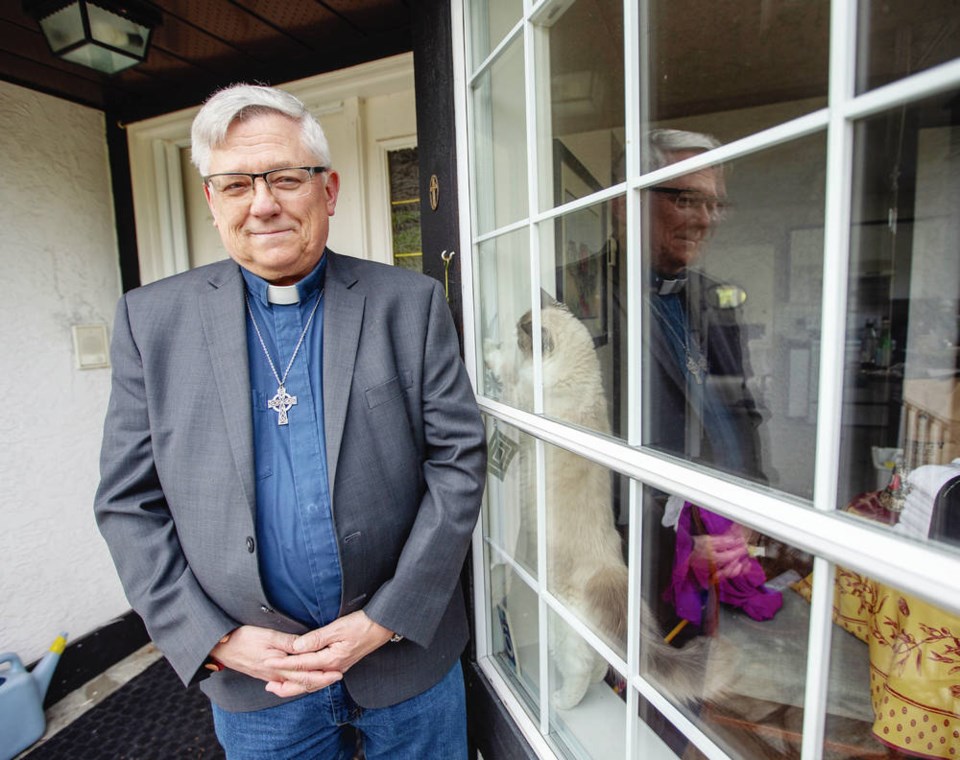Eleven people died in Victoria last month from a toxic illicit drug supply. If the current pace continues — 10.5 deaths per month since the start of 2020 — the number of people lost in April will be about the same.
Rev. Lon Towstego reacts to these numbers with a mixture of grief and relief. He feels for the families of those who have died, and is grateful that his son is still alive.
Joe Towstego, an animal lover with a good ear for music, has struggled with substance use for more than two decades. He likes reading English literature, especially Charles Dickens, plays guitar and, at one time, toured across the country playing in a band. He recently turned 41 and is living in and out of shelters in Vancouver.
Lon Towstego, a View Royal resident, lives with the reality that his son could be a coroners service statistic one day, despite the family’s efforts to support Joe and help him into recovery.
“I believe that he is dying a slow death,” he said.
Towstego said stigma around drug use enables many to tune out the crisis, even as B.C. is reporting record drug-toxicity deaths.
When the pandemic hit last year, it brought a more volatile drug supply and more dead than ever before. The province saw 1,723 deaths in 2020, nearly double the number in 2019, when deaths had declined for the first time since 2012.
Toxic drugs killed 158 people in B.C. in March, pushing the total number of deaths linked to the province’s overdose crisis to 498 since the start of the year. Twenty-three people died on Vancouver Island.
Corey Ranger, a registered nurse who works on a local safe-supply project called the Victoria Safer Initiative, said he is frustrated by having the same conversation over and over about how these deaths can be prevented.
“Every month, we’re sitting here, shouting from the rooftops that people need safe pharmaceutical alternatives to a volatile and deadly street supply of drugs, and police need to stop criminalizing people for their drug use,” he said. “And then nothing happens and more people die, and we’re expected to act surprised when it happens again the next month.”
A free drug-checking site in North Park that opened in March is “as busy as we’ve ever been,” said Bruce Wallace, a co-principal investigator for the Vancouver Island Drug Checking Project.
Wallace said the drug- checking project tested 155 samples in March, an increase of nearly 400 per cent from March 2020. The project previously operated out of overdose-prevention sites, and was forced to move when the pandemic closed indoor sites, said Wallace, an associate professor of social work at the University of Victoria.
The project’s findings, which are released in regular reports, are aligned with what the B.C. Coroners Service has reported recently about the illicit drug supply, he said.
The coroners service says carfentanil, which is 100 times stronger than the opioid fentanyl, is linked to 48 deaths so far this year, compared with 65 for all of 2020.
The service also says the use of tranquilizing drugs containing benzodiazepines was detected in 51 per cent of deaths in February, raising concerns because such drugs do not respond to overdose-reversing treatment.
— With files from The Canadian Press



